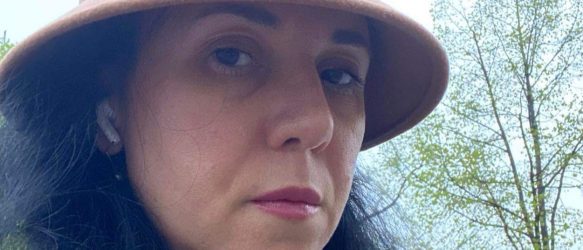Under the supervision of Assoc. Prof. Hana Vymazalová from the Czech Institute of Egyptology at CU FA, Dr Sue Kelly is working on a project titled “The Impact of Political and Climate Change on Women’s Agency: A Social Power Analysis.” It aims to comprehensively analyze women’s lives, exploring their social, economic, and political agency amidst the backdrop of political disintegration and environmental challenges.
Dr. Sue Kelly’s project seeks to shed some light on neglected stories of the women of ancient Egypt. It focuses on the First Intermediate Period (FIP), an era of significant upheaval and transformation, dating to c. 2150–1940 BCE. Although historical narratives often overshadow the contributions of women during this era, their biographical inscriptions captured on their funerary monuments can reveal their involvement, influence, and impact on their society.
“Women did have voice and influence during the FIP, and this in-depth study of available sources will contribute to a fundamental reassessment of history and integration of their stories into the legacy of ancient Egypt,” says Hana Vymazalová when introducing the general aim of the project. The FIP, historically seen as a period of decline, is now recognized for its cultural complexity and the emergence of new social parties. Through a detailed examination of archaeological and epigraphic evidence, including changes in burial practices and artistic expressions, the project will illuminate the nuanced social landscape of the period.
The research not only enriches our understanding of ancient Egyptian society, but also highlights the importance of integrating women’s stories into the broader historical discourse, offering a more inclusive and comprehensive view of the past. Historically, information on FIP women has been subsumed into studies of the Old Kingdom period or discussed in conjunction with the women of the following Middle Kingdom. “Our project exceeds any previous considerations of the FIP women,” explains Dr. Sue Kelly. “The methodology of our project breaks away from the conventional descriptive analyses and studies of titles typically associated with Egyptology. I will incorporate interpretative analyses, drawing upon theoretical developments from various disciplines,” adds Dr Kelly assessing the significance of her research.
The project will examine the social power of these FIP women within a theoretical framework that evaluates their access to and control over economic, symbolic, and political resources based on their vocations. “Through this innovative approach, we aim to gain a deeper understanding of the dynamics of power within the FIP and shed light on the role of women in ancient Egyptian society,” Dr Kelly says.
Dr. Sue Kelly has been in contact with the Czech Institute of Egyptology at CU FA since completing her PhD studies, as Assoc. Prof. Hana Vymazalová was one of the examiners of her dissertation. After her graduation, she decided to follow-up on their cooperation and applied for the prestigious postdoctoral programme under Hana Vymazalová’s supervision.
“Her extensive experience in the period, royal ideology and cults, the economy and administration of pyramid complexes and the Egyptian state, and female empowerment makes her the perfect supervisor to guide me through the project,” Dr Kelly says, explaining that she specifically chose the Czech Institute of Egyptology at CU FA because of its strong research background in the archaeology of complex societies, socioeconomic development, climate dynamics and resilience, and royal women of the Old Kingdom in the FIP.
The objective of the Marie Skłodowska-Curie Actions Postdoctoral Fellowship programme is to support researchers’ careers and foster excellence in research. The programme targets researchers holding a PhD who wish to carry out their research activities abroad, acquire new skills, and develop their careers. It helps researchers gain experience in other countries, disciplines, and non-academic sectors.









